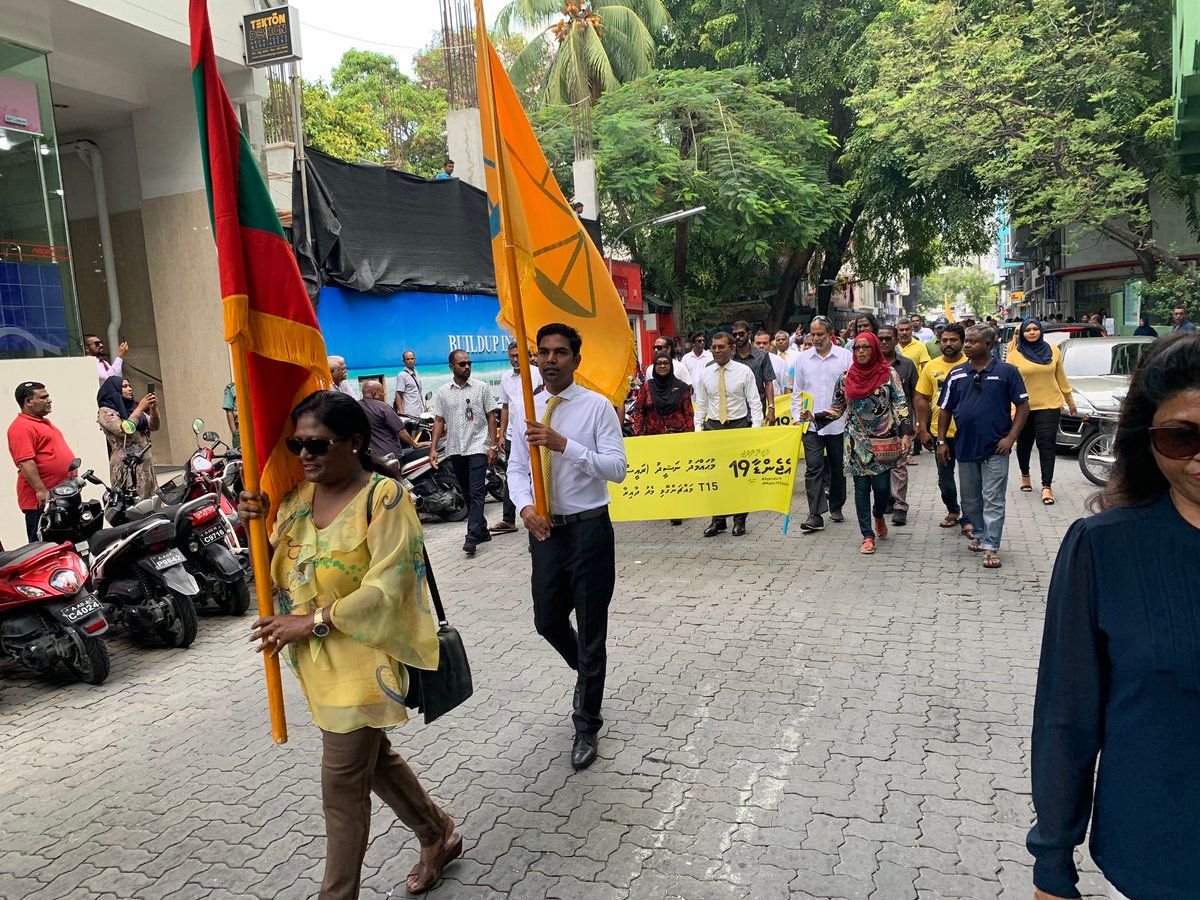MDP candidates disclose personal finances
Former president Nasheed declared over MVR5 million (US$324,000).

24 Feb 2019, 09:00
The personal finances and assets of Maldivian Democratic Party’s candidates for parliament were made public on Friday.
Asset disclosure forms submitted by 85 of the ruling party’s 86 candidates have been posted online, including the financial statement of former president Mohamed Nasheed for the first time.
Nasheed declared MVR5.4 million (US$349,288) as assets.
More than MVR5 million was in a joint account at the State Bank of India with an undisclosed partner. Local media speculated that the co-owner was likely to be former first Laila Ali, a shareholder in her family’s Alia Investments, one of the largest companies in the country.
Become a member
Get full access to our archive and personalise your experience.
Already a member?
Discussion
No comments yet. Be the first to share your thoughts!
No comments yet. Be the first to join the conversation!
Join the Conversation
Sign in to share your thoughts under an alias and take part in the discussion. Independent journalism thrives on open, respectful debate — your voice matters.




